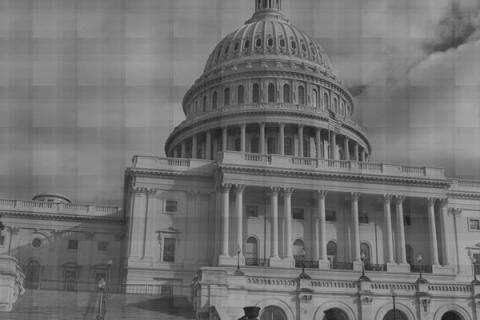During the 2008 presidential election and throughout the first two years of his administration, President Obama managed to project a carefully cultivated image as a truly post-racial president. While his supporters often accused his detractors in no uncertain terms of racial bigotry, Barack Obama seemed to rise above it all, magnanimous and reasonable. If his rhetoric had been more racially inflammatory like previous presidential contenders Al Sharpton and Jesse Jackson, Obama may not have won his party's nomination and moved on to become the first black president in US history.
Americans learned this week, however, from a US News and World Report article that President Obama may not be so above the politics of race after all. Back in May of 2010, he reportedly told guests at a private White House dinner that race was probably a key part of the rising opposition to his administration, especially in the Tea Party movement. When one guest suggested that Tea Party calls to "take back" their country have a racist subtext, the president didn't take issue with that interpretation. He agreed that there is a racially-motivated "subterranean agenda" in the Tea Party movement.
Just four months later, when accepting Rep. Joe Wilson's apology for yelling out "You lie!" during a joint address to Congress, Obama publicly said something that would make this week's revelation of his private remarks about the Tea Party's motivations all the more interesting. Obama said:
"We have to get to the point where we can have a conversation about big, important issues that matter to the American people without vitriol, without name-calling, without the assumption of the worst in other people's motives."
So why have progressive journalists and Democratic politicians- including even Obama- assumed the worst in other people's motives? When a grassroots movement to curb federal spending says that Washington's budget is unsustainable, why assume that their real motivation must actually be racial hatred? On what basis do pundits and politicians make these serious accusations? The federal budget is a big, important issue that matters to the American people. Why can't they have an earnest discussion about it without the president assuming the worst in their motives and dismissing them as racist?
Another interesting story about the Tea Party this week was a Pew Research Center poll which found that Americans are far less angry with the government than they were six months ago. The fact that America has a black president hasn't changed, so if that were their motivation, why would there be so dramatic a decrease in anger at the government in so short a time? One notable thing that has changed in American politics is the November sweep of Congress by Republicans, which many commentators have credited for the sudden thaw in Tea Party anger. If that is the case, then the real motivation behind the Tea Party would appear to lie in partisanship and/or policy, not in race.

